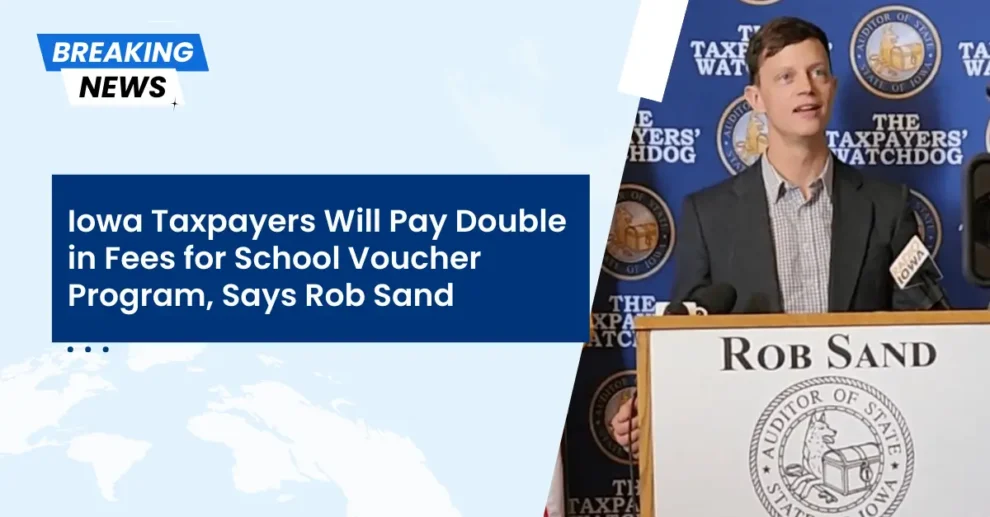A recent study by Iowa Auditor of State Rob Sand states that taxpayers will pay far more for the Education Savings Account (ESA) program than was initially anticipated. According to Sand’s analysis, the Iowa Department of Education’s modified contract will cost taxpayers twice as much.
According to Sand’s research, the Iowa Department of Education changed the original contract with Odyssey, a New York corporation selected to manage the program’s funding, in a way that will ultimately cost hundreds of thousands of dollars more than it did at first.
Parents can use the ESA payments to cover educational costs like private school tuition, textbooks, technology, private tutoring, or specialized educational or therapeutic services depending on the student’s needs. The money is deposited into an account.
In K–12 education, education savings accounts (ESAs) give parents access to a government-approved, publicly financed savings account with a variety of limited but approved uses for learning. The money can be used by parents to cover a variety of costs, such as tuition for the school, tutoring, online learning, special education programs, treatments for their children, textbooks, and other teaching supplies. In some cases, the money can also be saved for college.
The service entity (a state, as in Arizona, or a contracted third party, as in Florida) audits these costs to make sure the money is being spent appropriately. The majority of states permit the rollover of unused money for future educational costs, like college tuition. In order to prevent double financing, pupils participating in an ESA program are prohibited from attending public school at the same time.
“The amounts paid out as a qualified educational expense amounts to an additional $267,250 cost to administer the program in fiscal year 2024,” according to Sand’s report. According to the research, the price in 2025 will be $390,750. It will rise to $784,750 in 2026. The Legislative Services Agency (LSA), a nonpartisan organization that assesses the cost of legislation, provided all of these estimates.
The cost increased to $729,550, or “more than double the original contract amount,” by 2027. According to the LSA, the new contract will cost $852,750. Transaction fees of 25 cents and a few minor adjustments account for the additional expense. At a press conference, Sand stated that no explanation for the rise had been given. Additionally, he cautioned that the figures are conservative and that the true cost might be higher.












Add Comment